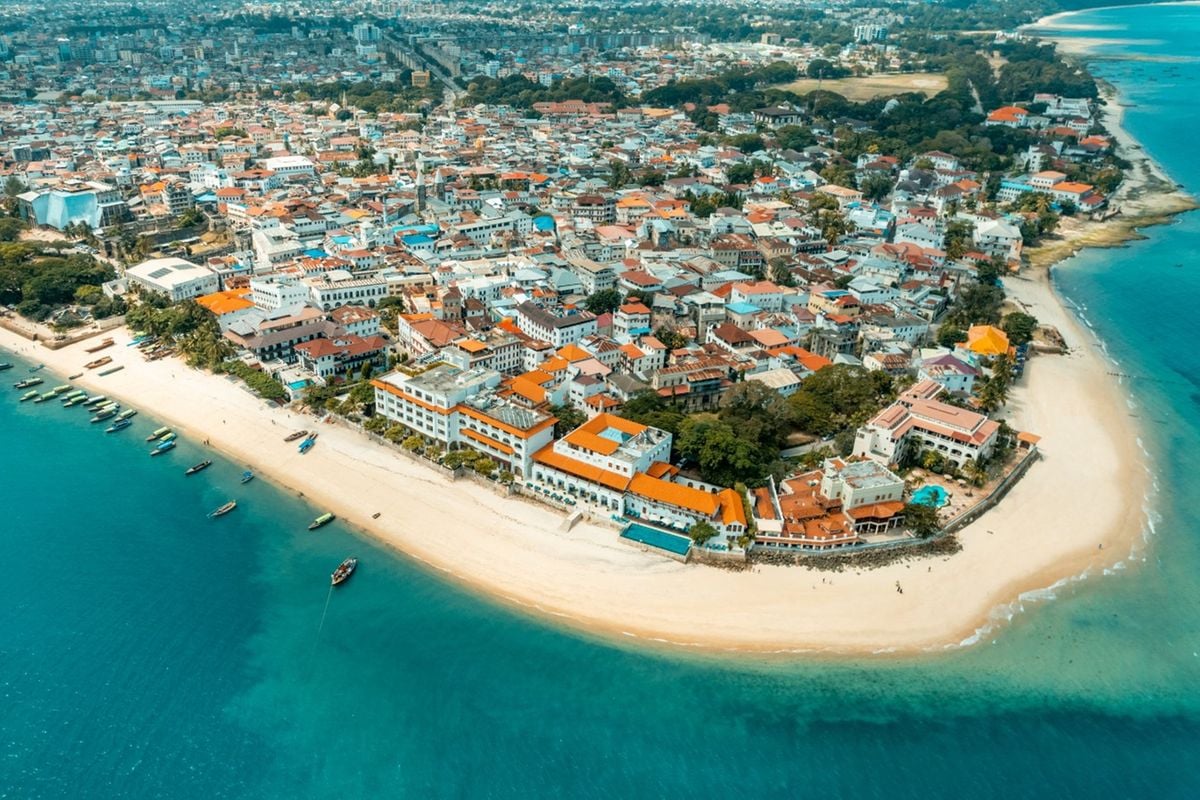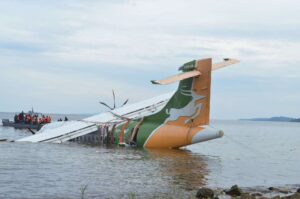
Unguja. Utalii ndiyo sekta mama Zanzibar, ikichangia pato la Taifa kwa zaidi ya asilimia 30.
Pia unachangia zaidi ya asilimia 30 ya fedha zote za kigeni na inatoa ajira zaidi ya 200,000 sawa na zaidi ya asilimia 60 ya ajira zote katika mnyororo wa thamani unaotokana sekta hiyo.
Kwa mujibu wa Wizara ya Utalii na Mambo ya Kale, kwa kipindi cha mwaka 2023 watalii wameongezeka kwa asilimia 16.4 kutoka 548,503 mwaka 2022 hadi kufikia 638,498 mwaka 2023.
Hata hivyo, wizara imelenga kufikia watalii 800,000 kutokana na hamasa na namna inavyotangaza vivutio vilivyopo.
Licha ya sekta hiyo kuwa na mchango mkubwa kwa pato la Taifa na kuzalisha ajira, kwa muda mrefu imekuwa ikitegemea maeneo makuu mawili ya fukwe na mambo ya kale.
Hata hivyo, sasa mambo yanabadilika, hivi karibuni Serikali kupitia wizara na Kamisheni ya Utalii imeanza mpango kuhakikisha inaongeza watalii na kupanua wigo wa soko.
Katika mwaka 2024, wizara kwa kushirikiana na Kamisheni ya Utalii imetengeneza mikakati kuhakikisha inapandisha utalii na kubadilisha mitazamo ya utalii wa aina moja.
Njia zingine za utalii zilizoongezwa ni wa mikutano, michezo na maadili.
Kwa mujibu wa Ofisi ya Mtakwimu Mkuu wa Serikali, wageni wamekuwa wakiongezeka, mathalani Agosti, 2024 waliingia 68,223 ikilinganishwa na 58,711 waliongia Julai.
Kwa Septemba walikuwa wageni 72,296, Novemba waliingia 67,049. Ongezeko hili linatajwa linatokana na jitihada zinazofanywa na Serikali.
Waziri wa Utalii na Mambo ya Kale, Ramadhan Soraga amesema wameamua kuanzisha utalii tofauti na fukwe ili kuwa na utalii endelevu muda wote.
Kwa mujibu wa Soraga, wamebaini kuwa na utalii wa aina moja kunafanya wageni wanaokwenda kutembelea kisiwa hicho wasirejee tena kwa sababu ya kukosa vitu vingine vipya.
“Kuwa na utalii tofauti kunasaidia kuendelea kushika soko kubwa la utalii na kuwavutia wageni wengi kuja kutembelea Zanzibar,” amesema.
Amesema Zanzibar imeongeza miundombinu ya ujenzi, ikiwemo ya viwanja vya ndege na kuongeza hoteli zenye hadhi ya kimataifa ili kukidhi matakwa.
Zanzibar ina hoteli zaidi ya 600 zenye hadhi ya kitalii, zikiwa na vyumba 20,000 vyenye hadhi ya kulaza watalii.
Katika mkakati huo, Zanzibar ina mashirika zaidi ya 80 yanayoleta ndege zake kutoka mataifa mbalimbali, watalii wakifika kwa ajili ya kutalii na kufanya shughuli nyingine zikiwemo za kibiashara.
Mwaka 2024 imeshuhudiwa kukianzishwa utalii wa maadili na mikutano uliowezesha zaidi ya mataifa 12 kuhudhuria kongamano lililowahusisha pia watu mashuhuri, akiwamo Mufti Ismail Menki.
Utalii wa Halal unaohusisha zaidi masuala ya kuheshimu maadili na utamduni licha ya kwamba unafanyika mataifa mengine, kwa Zanzibar ulifanyika kwa mara ya kwanza ikiwa ni sehemu ya kupanua wigo wa utalii.
“Soko la utalii wa halal linakua kwa kiasi kikubwa Zanzibar ikiwa ni sehemu ya visiwa vinavyotegemea kipato chake kikubwa kupitia sekta ya utalii, Serikali imeona kuna haja ya kukuza na kuutambua utalii wa aina hiyo kwa kuwa kuna fursa zinazopatikana,” alisema Soraga.
Kwa mujibu wa Soraga, soko hilo linatabiriwa kuongeza mapato ya kimataifa kutoka Dola za Marekani 245.78 bilioni (Sh582 trilioni) mwaka 2022 hadi kufikia Dola 324.96 bilioni (Sh769.7 trilioni) ifikapo mwaka 2030.
Bara la Asia ndilo linaloongoza kwa utalii huo kwa asilimia 31 likifuatiwa na Bara la Afrika kwa asilimia 21 licha ya ukweli kwamba Afrika Mashariki ipo nyuma katika utalii huo.
Mwenyekiti wa Kamisheni ya Utalii Zanzibar, Rahim Bhaloo amesema ni wakati sahihi kwa wananchi kuwa tayari kutumia fursa zilizopo kuchangamkia utalii.
“Fursa muhimu zipo tunatakiwa kuzifanyia kazi ili kwenda na mabadiliko ya utalii nchini,” alisema.
Katibu Mtendaji wa Kamisheni ya Utalii, Arafat Abbas Manji amesema utalii wa kijani ndiyo kiini cha mkakati wa utalii kwani unasaidia kukuza uchumi na kuongeza vipato.
Amesema kamisheni imeanzisha ushirikiano na taasisi zingine kuwawezesha wajasiriamali wa ndani kutoa uzoefu wao na kuonyesha mambo yao kukuza utalii.
Utalii wa michezo
Mkurugenzi wa Utalii, Dk Abdulla Mohammed Juma anasema wameanzisha matamasha na mashindano ya Marathoni ya kimataifa ili kukuza utalii wa Zanzibar.
Amesema juhudi hizo zinalenga kuitangaza Zanzibar kama kivutio cha kipekee cha utalii duniani, huku zikihamasisha wageni wa kimataifa na wa ndani kutembelea visiwa hivyo.
“Matukio kama haya husaidia si tu kuongeza idadi ya watalii, bali kuchangia katika uchumi wa Zanzibar kupitia huduma za hoteli, usafiri na sekta nyingine zinazohusiana na utalii. Hatua hii ni moja ya mikakati muhimu ya kutangaza vivutio vya Zanzibar kama vile fukwe zake, utamaduni wake wa kipekee na historia yake tajiri,” anasema.
Anasema katika jambo hilo mkakati mkubwa ni kuongeza bidhaa za kitalii za Zanzibar kwa kutoa msukumo upande wa utalii wa historia na mambo ya kale, utalii wa michezo, wa vyakula na wa mikutano ili kuongeza siku za wageni kukaa Zanzibar.
“Uhalisia utalii na michezo ni kitu kinachokwenda sambamba na ndiyo maana tukawa na mashirikiano makubwa na wote wanaoanzisha matamasha na marathoni zao,” amesema.
Anasema Serikali imechukua jitihada kubwa kuunganisha nguvu na mipango kwa kushirikiana na sekta nyingine za umma na binafsi ili kufikia lengo la pamoja la utalii endelevu na wenye tija kwa wote.
Mwakilishi wa Taasisi ya Touch Road Marathon, Zeng Peng anasema wanaunga mkono jitihada za Serikali ya Mapinduzi Zanzibar (SMZ) katika suala la kukuza utalii, ndiyo maana wakaanzisha marathoni ili kuongeza watalii wanaoitembelea Zanzibar.
Source: mwananchi.co.tz












